References/Bibliography
“How-to” guide
NOTE:
· A list of references contains details only of those works cited in the text.
· A bibliography lists sources not cited in the text but which are relevant to the subject and were used for background reading.
· Before you compile your bibliography/reference list check with your lecturer/tutor for the bibliographic style preferred by the Academic Department.
· A citation is an acknowledgement in your text of references that support your work. It is in the form of a number that correlates with a source in your reference list.
· There are many ways of setting out bibliographies and reference lists. The following are examples of one style – the
· Your reference list should identify references cited (eg. book, journal article, pamphlet, internet site, cassette tape or film) in sufficient detail so that others may locate and consult your references.
· Your reference list should appear at the end of your essay/report with the entries listed numerically and in the same order that they have been cited in the text.
· If you have cited sources from the Internet, these should be in your reference list.
· The bibliography is a separate list from the reference list and should be arranged alphabetically by author or title (where no author is given) in the Vancouver Style.
· Punctuation marks and spaces in the reference list and citations are very important. Follow the punctuation and spacing exactly in the examples given.
INDICATING REFERENCES IN THE TEXT OF YOUR ESSAY
** It is important to BE CONSISTENT when you are referencing. **
· In the
· The identification of references within the text of your essay/paper may vary according to the preferred style of the journal or the preferred style of the department or lecturer. For example superscript may be preferred when referencing.
· The Vancouver System assigns a number to each reference as it is cited. A number must be used even if the author(s) is named in the sentence/text.
Example: Smith (10) has argued that….
· The original number assigned to the reference is reused each time the reference is cited in the text, regardless of its previous position in the text.
· When multiple references are cited at a given place in the text, use a hyphen to join the first and last numbers that are inclusive. Use commas (without spaces) to separate non-inclusive numbers in a multiple citation eg. 2,3,4,5,7,10 is abbreviated to (2-5,7,10) Do not use a hyphen if there are no citation numbers in between that support your statement eg. 1-2.
· reference may be relevant to only part of a sentence. As a general rule, reference numbers should be placed outside full stops and commas, inside colons and semicolons; however, this may vary according to the requirements of a particular journal.
· Examples:
§ There have been efforts to replace mouse inoculation testing with invitro tests, such as enzyme linked immunosorbent assays (57, 60) or polymerase chain reaction, (2022) but these remain experimental.
§ Moir and Jessel maintain “that the sexes are interchangeable”.
CITING A BOOK
The essential details required are (in order):
1. Name/s of author/s, editor/s, compiler/s or the institution responsible.
· Where there are 6 or less authors you must list all authors.
· Where there are 7 or more authors, only the first 6 are listed and add “et al” (et al means “and others”).
· Put a comma and 1 space between each name. The last author must have a full-stop after their initial(s).
Format: surname (1 space) initial/s (no spaces or punctuation between initials)
(full-stop OR if further names comma, 1 space)
Example 1.1:
Example 1.2: Smith AK, Jones BC, Bloggs TC, Ashe PT, Fauci AS, Wilson JD et al.
Example 1.3: The Cardiac Society of Australia and New Zealand.
Example 1.4: When no author is given “Anonymous” or “Anon” is unnecessary. Us the
title of the article or book.
2. Title of publication and subtitle if any
· Do not use italics or underlining.
· Only the first word of journal articles or book titles (and words that normally begin with a capital letter) are capitalised.
Format: 1: title (full-stop, 1 space)
Example 2.1:
Example 2.2: Physical pharmacy: physical chemical principles in the pharmaceutical sciences.
Example 2.3: Pharmacy in
3. Edition, if other than first edition.
· Abbreviate the word edition to:- ed. (Do not confuse with editor.)
Format: edition statement (fullstop, 1 space)
Example 3.1: 3rd ed.
4. Place of publication
· If the publishers are located in more than one city, cite the name of the city that is printed first.
· Write the place name in full.
· If the place name is not well known, add a comma, 1 space and the state or the country for clarification. For places in the
Format: place of publication (colon, 1 space)
Example4.1:
Example 4.2:
Example 4.3:
5. Publisher
· The publisher’s name should be spelt out in full.
Format: publisher (semi-colon, 1 space)
Example 5.1: Australian Government Publishing Service;
Example 5.2: Raven Press;
Example 5.3: Williams & Wilkins;
6. Year of publication.
Format: year (full-stop, add 1 space if page numbers follow)
Example 6.1: 1999.
Example 6.2: 2000. p. 12-5.
7. Page numbers (if applicable).
· Abbreviate the word page to “p.”.
· NOTE: do not repeat digits unnecessarily – abbreviate.
Format: p (full-stop, 1 space) page numbers (full-stop).
Example 7.1: p. 122-9.
Example 7.2: p. 1129-57.
Example 7.3: p. 333,338,340-5. (when article not on continuous pages)
8. Series title and individual volume (if any).
· Put in brackets.
· Abbreviate the word volume to “vol”.
Format: (Series title (semi-colon, 1 space) vol (1 space) volume number) full-
stop outside brackets
Example 8.1: (Annals of the
EXAMPLES OF CITING BOOKS
• One to six authors
Getzen TE. Health economics: fundamentals of funds.
Explanation of above citation:
AUTHOR (Getzen TE.)
TITLE (Health conomics:fundamentals and flow of funds.
PLACE OF PUBLICATION (
PUBLISHERS (John Wiley & Sons;)
YEAR OF PUBLICATION (1997.)
Lodish H, Baltimore D, Berk A, Zipursky SL, Matsudaira P, Darnell J. Molecular cell biology. 3rd ed.
• More than six authors
Give the first six names in full and add “et al”. The authors are listed in the order in which they appear on the title page.
Fauci AS, Braunwald E, Isselbacher KJ, Wilson JD, Martin JB, Kasper DL, et al, editors.
• Editor/s
Follow the same methods used with authors but use the word “editor” or “editors” in full after the name/s. The word editor or editors must be in lower case. (Do NOT confuse with “ed.” used for edition.)
Millares M, editor. Applied drug information: strategies for information management. Vancouver (WA): Applied Therapeutics, Inc.; 1998.
• Sponsored by institution, corporation or other organisation (including PAMPHLET)
Australian Pharmaceutical Advisory Council. Integrated best practice model for medication management in residential aged care facilities.
Example of pamphlet (if available include additional information eg place of production, printer):
Pharmaceutical Society of
• Package insert (leaflet supplied with medicine):
Lamasil [package insert].
• Edition (other than first)
Blenkinsopp A, Paxton P. Symptoms in the pharmacy: a guide to the management of common illness. 3rd ed.
• Chapter or part of a book to which a number of authors have contributed
Porter RJ, Meldrum BS. Antiepileptic drugs. In: Katzung BG, editor. Basic and clinical pharmacology. 6th ed.
• Dictionary and similar references
Stedman's medical dictionary. 26th ed.
20.
Note: Include the Definition looked up - in this case "Apraxia"
• Book in a Series
Bennett GL, Horuk R. Iodination of chemokines for use in receptor binding analysis. In: Horuk R, editor. Chemokine receptors.
Chemokine receptors = name of the book
Methods in enzymology = title of the series
• Encyclopaedia
Hanrahan C. Valerian. In: Krapp K, Longe JL, editors. The Gale encyclopedia of alternative medicine.
• Legal Material
Note: (s = section of act, r = regulation) Pharmacy Act 1976 (Qld) Airlines Equipment Amendment Act 1981 (Cwlth), s. 19(1)(a)(ii) Public Service Regulations (Cwlth), r.83(2)(a)(ii)
CITING A JOURNAL ARTICLE
The essential details required are (in order):
1. Name/s of author/s of the article.
See step 1 of "Citing a book" for full details.
2. Title of article.
See step 2 of "Citing a book" for full details.
Example 2.1: Validation of an immunoassay for measurement of plasma total homocysteine.
3. Title of journal (abbreviated).
• Abbreviate title according to the style used in Medline. A list of abbreviations can be found at: http://www.ncbi.nlm.nih.gov/entrez/query.fcgi?db=journals
• Note: no punctuation marks are used in the abbreviated journal name – just spaces.
Format: journal title abbreviation (1 space)
Example 3.1: Bol Soc Dent Guatem
Example 3.2: J Mol Biol
4. Year (and month/day if necessary/available) of publication.
• Abbreviate the month to the first 3 letters.
Format: year (1 space) month (1space) day (semi-colon, no space) OR
year (semi-colon, no space)
Example 4.1: 1996 Jun 1;12(5):127-33.
5. Volume number (and issue/part -).
• *If the journal has continuous page numbering through volume’s issues, the month/day and issue information may be omitted.
Format: volume number (no space) issue number in brackets (colon, no
space) OR volume number (colon, no space) Example 5.1: 1996;12(5):127-33. or 1996;12:127-33
6. Page numbers NOTE: do not repeat digits unnecessarily
Format: page numbers (full-stop)
Example 6.1: 531-5
EXAMPLES OF CITING JOURNALS:
NOTE SOME JOURNALS MAY HAVE:
. • A day, month and year
. • A month and year
. • A season and year eg. Autumn 2001
. • Only a year
Russell FD, Coppell AL,
Explanation of above citation:
AUTHORS (Russell FD, Coppell AL,
TITLE OF ARTICLE (vitro enzymatic processing of radiolabelled big ET-
TITLE OF JOURNAL (Biochem Pharmacol)
PUBLICATION YR/MO/DAY (1998 Mar 1)
VOLUME/ISSUE NO. (55(5):)
PAGE NO.S (697-701)
NOTE: - Choose an option and be consistent | |
Option 1: | Month and day (if available) may be omitted only if continuous paging through issues. |
Option 2: | Month/day (if available) and issue number (if available) are important if the pages in the journal are non-continuous |
Option 3: | Continuous page numbers (most journals have this) – may omit month/day and issue number. Example below. |
Russell FD, Coppell AL,
NO AUTHOR GIVEN IN ARTICLE
Coffee drinking and cancer of the pancreas [editorial]. BMJ 1981;283:628.
JOURNALS WITH PART AND/OR SUPPLEMENTS
Examples:
Volume with supplement:
Environ Health Perspect 1994;102 Suppl 1:275-82.
Issue with supplement:
Semin Oncol 1996:23(1 Suppl 2):89-97.
Volume with part:
Ann Clin Biochem 1995;32(Pt 3):303-6.
Issue with part:
N Z Med J 1994;107(
Issue with no volume:
Clin Orthop 1995;(320):110-4.
No issue or volume:
Curr Opin Gen Surg 1993:325-33.
CITING CONFERENCES
Treat the proceedings of a conference like a book, adding pertinent information about the conference and cite a presentation from the proceedings like a work in a collection of pieces by different authors:
CONFERENCES PAPERS
Bengtsson S, Solheim BG. Enforcement of data protection, privacy and security in medical informatics. In: Lun KC, Degoulet P, Piemme TE, Reinhoff O, editors. MEDINFO 92. Proceedings of the 7th World Congress on Medical Informatics; 1992 Sep 6-10;
CONFERENCE PROCEDDINGS
Kimura J, Shibasaki H, editors. Recent advances in clinical neurophysiology. Proceedings of the 10th International Congress of EMG and Clinical Neurophysiology; 1995 Oct 15-19;
CITING A NEWSPAPER ARTICLE
The details may vary depending on the layout of the newspaper eg. section may not be relevant.
Format: Author if given (full-stop, 1 space) Title of article (full-stop, 1 space) Name of
newspaper (1 space) Date of edition (year Month Day) (semi-colon, no space) Section if applicable (section abbreviated to Sect.) (colon, no space) Page/s (1 space) Column number in round brackets (column abbreviated to col.) (full-stop)
Lee G. Hospitalizations tied to ozone pollution: study estimates 50,000 admissions annually.
The
CITING MULTIMEDIA MATERIAL
The details required are the same as for a book, with the form of the item indicated in brackets after the title and edition statement.
Get the facts (and get them organised) [videocassette]. Williamstown (Vic): Appleseed
Productions; 1990.
CITING INTERNET AND OTHER ELECTRONIC SOURCES
· This includes software and Internet sources such as web sites, electronic journals and databases.
· These sources are proliferating and the guidelines for citation are developing and subject to change.
· The following information is based on the recommendations of the National Library of Medicine.
· The basic form of the citations follows the principles listed for print sources (see above).
In the case of sources that may be subject to alteration it is important to acknowledge the DATE THE INFORMATION WAS CITED. This is particularly true for web sites that may disappear or permit changes to be made and for CD-ROMS that are updated during the year.
JOURNAL ON THE INTERNET
NOTE: Follow the same procedure for citing print journals as for electronic journals regarding date, volume pages and journal title.
Format: Author/s (full-stop after last author, 1 space) Title of article (full-stop, 1 space)
Abbreviated title of electronic journal (1 space) [serial online] (1 space) Publication year (1 space) month(s) - if available (1 space) [cited year month (abbreviated) day] - in square brackets (semi colon, 1 space) Volume number (no space) Issue number if applicable in round brackets (colon) Page numbers or number of screens in square brackets (full-stop, 1 space) Available from (colon, 1 space) URL:URL address underlined Examples:
Morse SS. Factors in the emergence of infectious disease. Emerg Infect Dis [serial online] 1995 Jan-Mar [cited 1999 Dec 25]; 1(1):[24 screens]. Available from:URL:
http://www/cdc/gov/ncidoc/EID/eid.htm
WWW SITE
(If the author is not documented, the title becomes the first element of the reference.)
Format: Author (full-stop after last author, 1 space) Title (full-stop, 1 space) [Online] (full stop, 1
space) Publication Year (1 space) [cited year month (abbreviated) day] (semi colon) Number of screens in square brackets or pages (full-stop, 1 space) Available from (colon, 1 space) URL: (no space) URL address underlined
NOTE:
· The number of screens is NOT necessary. Put a semi colon and 1 space after the cited date if no pages or screen numbers are listed.
When the date is approximated, indicate that by following the date with a question mark and
· inserting the statement in square brackets. Eg. [2001?]
Examples:
National Organization for Rare Diseases [Online]. 1999 Aug 16 [cited 1999 Aug 21]; Available from: URL:http://www.rarediseases.org/
Zand J. The natural pharmacy: herbal medicine for depression [Online]. [1999?] [cited 2001 Aug 23];[15 screens]. Available from: URL:http://www.healthy.net/asp/templates/Article.asp?PageType=Article&Id=920
WEB BASED/ONLINE DATABASES
Basic Format:
Author/editor. (full stop, 1 space) Title (full stop, 1 space) [type of medium = Online] (full stop, 1 space) Publishing details if available. Available from: (1 space) Title and publishing details of the database if available. [cited date] (full stop)
Kirkpatrick GL. Viral infections of the respiratory tract. In: Family Medicine. 5th ed. [Online]. 1998. Available from: Stat!Ref. Jackson (WY): Teton Data Systems; 2001. [cited 2001 Aug 31]
NOTE: This is a chapter within an online book. Publication comes out quarterly therefore needs a cited date.
CD-ROM
Basic Format: Follow Book format:
· add [type of medium] after the title (full stop, 1 space) - Note: [type of medium] can be:- [CD ROM], [serial on CD-ROM] or [book on CD]
· add Version number (if available) after type of medium (full stop, 1 space)
Clinical pharmacology 2000 [CD-ROM]. Version 2.01. [cited 2001 Aug 7]; Gainsville (FL): Gold Standard Multimedia; 2001.
Note: this publication comes out quarterly therefore it needs a cited date.
BOOKS ON CD-ROM
Examples:
The Oxford English dictionary [book on CD-ROM]. 2nd ed.
Paracetamol. Martindale’s: the extra pharmacopoeia. In: International Healthcare Series [CD ROM]. [cited 1998 Sep 3]; Englewood (CO): Micromedex; 1998.
JOURNAL ON CD-ROM
Format: Author/s (full-stop, 1 space) Title of article (full-stop, 1 space) Abbreviated title of journal (1 space) [serial on CD-ROM] Year (semi-colon, no space) Volume (colon, no space) Pages (full-stop)
Example:
Gershon ES. Antisocial behavior. Arch Gen Psychiatry [serial on CD-ROM]. 1995;52:900-901.
OTHER SOFTWARE
Format: Title (1 space) medium in square brackets [eg. computer program, computer file]
(full-stop, 1 space) Version (full-stop, 1 space) Place of production (colon, 1 space) Producer (semi-colon, 1 space) Year (full-stop)
Example:
Epi Info [computer program]. Version 6.
ADDITIONAL NOTES ON THE
¨ TABLES
· Each table should be given a brief title.
· Number each table in the text in consecutive order.
· Explanatory matter is placed in footnotes, not in the heading.
¨ ILLUSTRATIONS and FIGURES
· Number each figure in the text in consecutive order.
· The original source should be acknowledged.
· The legends should be labeled with numerals corresponding to the figures etc.
¨ MEASUREMENT
· Length, height, weight and volume should be reported in metric units.
· Temperatures should be in degrees Celsius.
· Blood Pressure measured in mm of mercury.
· All haematological and biochemistry measurements stated in SI units.
¨ ABBREVIATIONS and SYMBOLS
Use only standard abbreviations. Consult the following for abbreviations:
A SA SAMPLE REFERENCE LIST:
· The following are examples of entries in a bibliography or list of references.
· A list of references contains details only of those works cited in the text.
· The references are listed in the same numerical order as they appear in the body of the text
Getzen TE. Health economics: fundamentals and flow of funds.




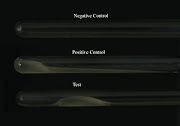
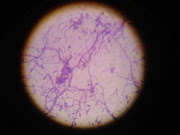


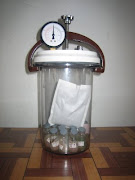





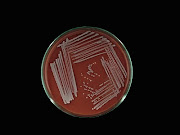


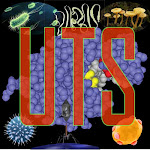
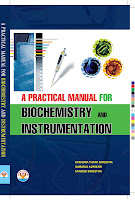
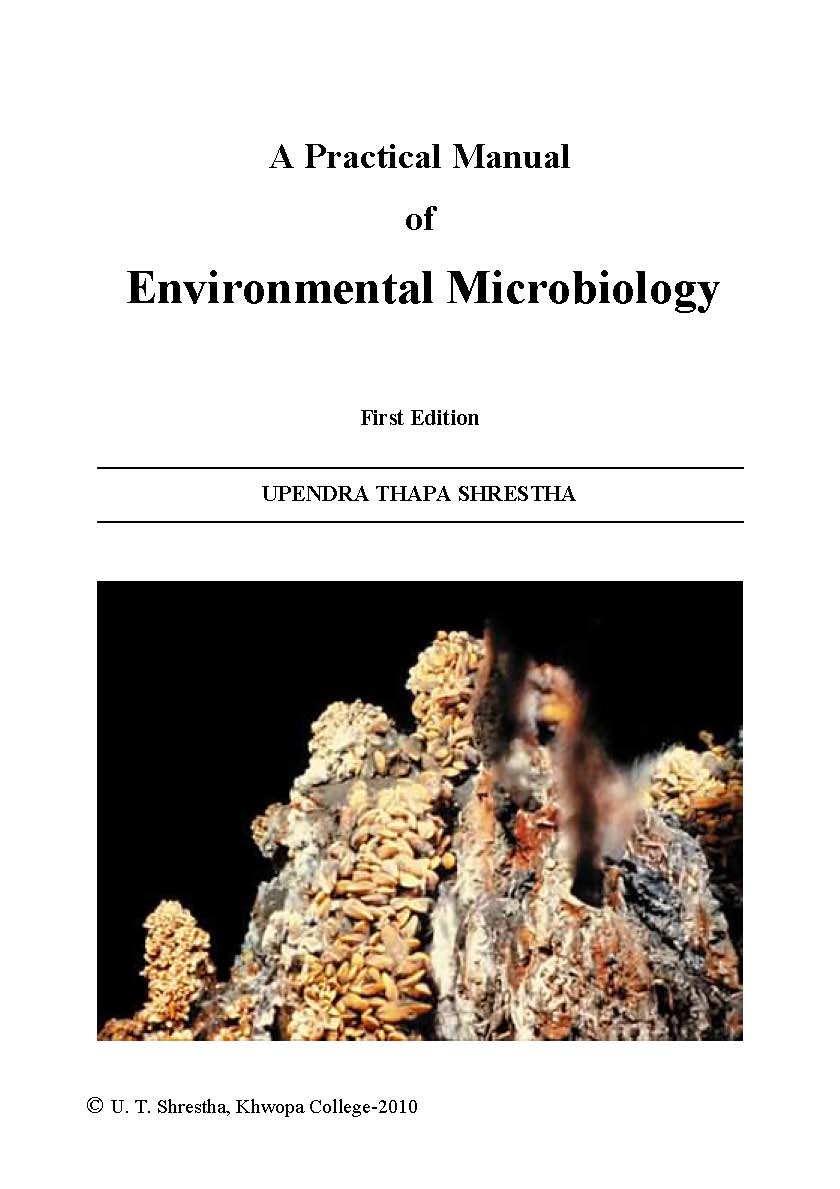
0 comments:
Post a Comment